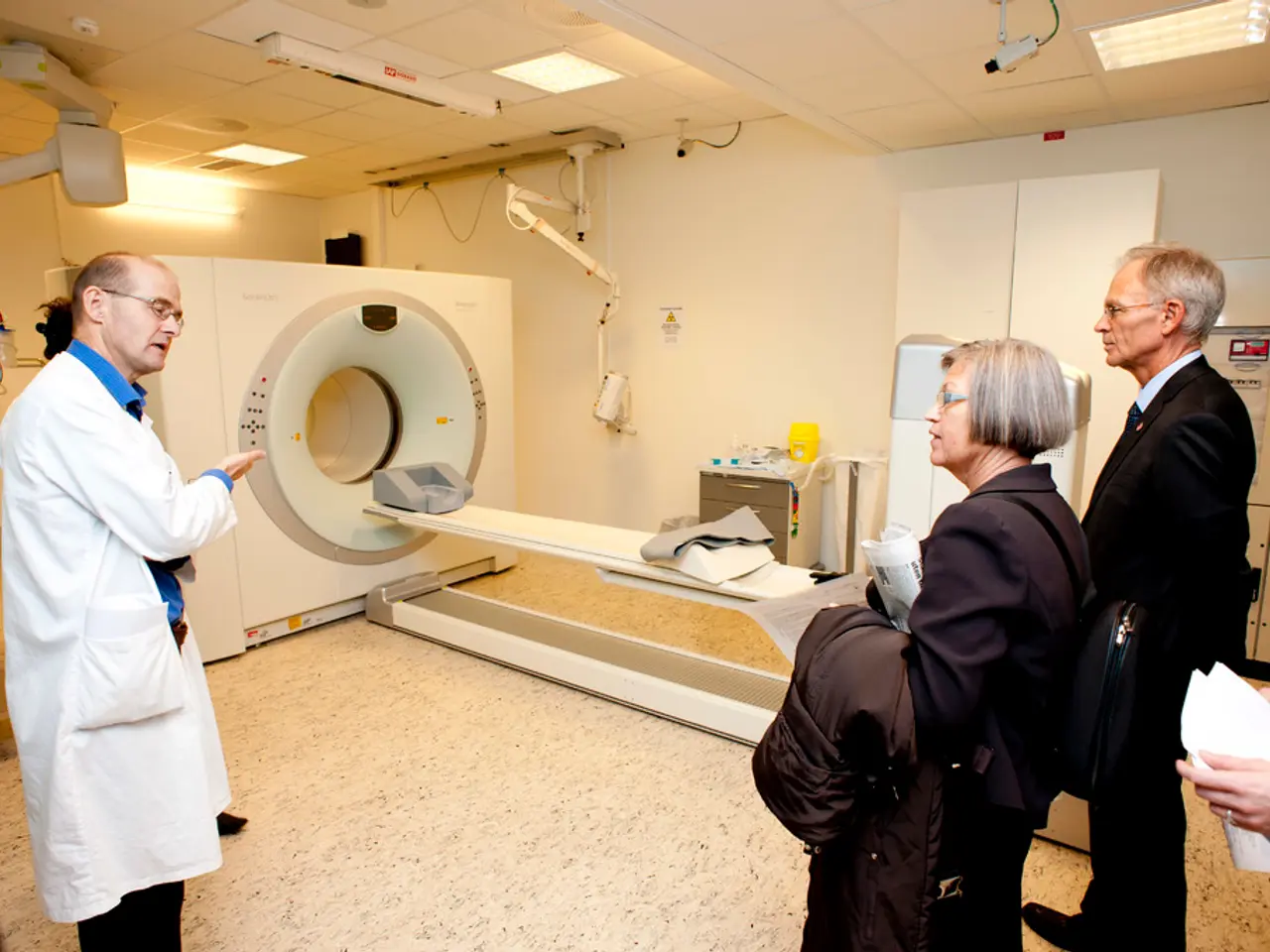Enhancements in Healthcare through Intel's AI and Deep Learning Solutions: Operational and Patient Care Improvements
In the realm of healthcare, Intel is making significant strides in enhancing patient care through deep learning and optimization of AI frameworks like Caffe and TensorFlow. Here's a closer look at how Intel is contributing to this transformative effort.
Enabling Deep Learning and AI Optimization
- High-Performance CPUs: Intel's Xeon scalable processors offer high-performance capabilities, designed to handle intensive AI workloads efficiently. This allows healthcare organizations to implement AI without the need for expensive hardware investments.
- Optimization Tools: Intel's Open Visual Inference and Neural Network Optimization (OpenVINO) toolkit is a key component in optimizing AI frameworks. OpenVINO helps in optimizing deep learning models for better performance on Intel hardware, particularly beneficial for frameworks like Caffe and TensorFlow.
- AI-Powered Medical Imaging: Intel's AI platforms are used to enhance medical imaging and diagnostics. AI algorithms powered by Intel's CPUs can rapidly analyze scans, reducing diagnosis errors and time in radiology applications.
- Edge Computing: While Intel isn't directly involved in edge computing initiatives like Houmo.AI's, its support for various CPU architectures and optimization tools can facilitate edge AI applications, allowing for more efficient inference closer to the data source.
Optimization of Caffe and Similar Frameworks
- Caffe Compatibility: Although Caffe is primarily optimized for GPU acceleration, it can also utilize multi-core CPUs with optimized libraries like Intel MKL. This allows for efficient processing of convolutional neural networks (CNNs) on Intel hardware.
- Performance Enhancement: Intel's OpenVINO can optimize models from various frameworks, potentially enhancing the performance of Caffe models when run on Intel CPUs or other compatible hardware.
Why Deep Learning and AI Optimization Matter
Deep learning and AI optimization are crucial in healthcare for several reasons:
- Efficiency and Accuracy: Optimized AI models can process large amounts of data quickly, leading to more accurate and efficient diagnosis and treatment recommendations.
- Personalized Medicine: AI can help tailor treatment regimens to individual patient profiles, improving outcomes in personalized medicine.
- Edge Computing Advantages: Running AI models closer to the data source with edge computing can reduce latency and improve real-time decision-making in clinical settings.
A survey conducted by Intel in late 2020 found that 84 percent of senior decision-makers in healthcare were using or planning to use AI, up from 37 percent two years earlier. The typical healthcare organization is exploring two types of AI deployment: classic machine learning and newer, emerging types. There's potential for developing algorithms that can detect medical conditions by analyzing the audio and video streams of telemedicine visits.
Chris Gough, worldwide general manager of health and life sciences at Intel, discusses how Intel enables healthcare to enhance patient care with deep learning. Forward-thinking organizations are finding ways to use AI in areas such as robotics, image and voice analysis, and collaborative research. Optimizing AI frameworks like Caffe and TensorFlow to run as fast as possible on underlying hardware speeds up algorithm training and inference, reducing the cost of development and deployment. For decision support at the point of care, it's preferable to have the AI model running as close to the user as possible. Intel's Deep Learning Boost Technology provides an advantage by boosting server performance, which is crucial for deep learning. Intel's work with the Confidential Computing Consortium has resulted in software guard extensions (Intel SGX) that enable secure, multiparty analytics for research collaboration.
With these advancements, Intel is poised to revolutionize healthcare through deep learning and AI optimization, ultimately enhancing patient care and outcomes.
- By utilizing Intel's Xeon scalable processors and optimizing AI frameworks like Caffe and TensorFlow with the OpenVINO toolkit, healthcare organizations can implement AI effectively, reducing the need for expensive hardware investments and enhancing medical imaging and diagnostics.
- The optimization of Caffe and similar frameworks on Intel hardware can lead to improved performance, enabling faster processing of large amounts of data in healthcare, which is essential for accurate and efficient diagnosis and treatment recommendations.




